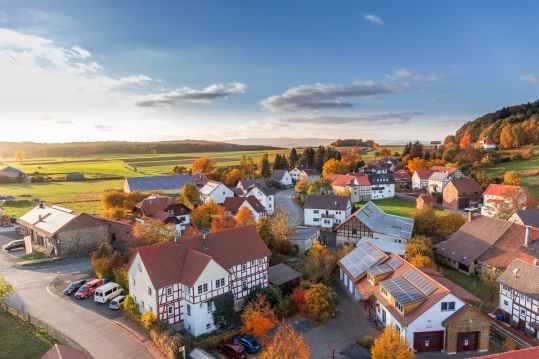Whenever we think of missionaries, one of the first things that pop into our heads is going to a different country, often far away and hot, where the language isn’t English. Then some sermon you heard once races forward and reminds you that everyone who professes Jesus is Lord is a missionary. You remind yourself that you are a missionary doing God’s work wherever you go.
This blog is in essence part two of my last blog ‘I’d go but…’
Most Christians who live in a village do not go to their local village church, whether it be Anglican, Methodist or Baptist. This will be for a number of reasons, the first one will often be about worship, the second will be about average age and the third will be about (if you have them) your children’s spirituality. Other reasons might be about theology, disagreements with the vicar / other church goers or the size of the congregation being small.
Here are a few reasons not to go to your local church
Your spiritual growth will be stunted. The sermons will just be ‘nice’. You will be singing songs you will never get the tune of. You will be sitting in the cold. You will be pounced on after three times attending to do a job, like be the treasurer or church warden. There will be nothing for your children, which they will hate you for, if not now, in years to come. You will be constantly be asked for money to repair some part of the building. After attending 6 months, you will be on the rota for everything. And you can add and add to the list.
If all Christians thought about their own needs, when looking for a group of worshippers to be joined with; would there be people (and areas) in Britain today that would be unreached by the gospel? I believe there would be. We are needing people to stop being inward-looking, to stop making God smaller and weaker than their issues of going to a local church. Do we believe in a God who takes cares of all our needs, do we believe that God is the father who gives his child a stone if he asks for bread or a snake if he asks for fish? Will God, if you ask, provide for all your needs?
You will be totally living out one of the last instructions Jesus gave us. Acts chapter 1 verse 8 ‘But you will receive power when the Holy Spirit comes on you; and you will be my witnesses in Jerusalem, and in all Judea and Samaria, and to the ends of the earth.’ This command starts at home, it starts where the disciples were. For us being a missionary should start with the places we live, and I believe that this is not a job to be done by ourselves. The church is the bride of Christ and as imperfect as it might be where you live, those people are your fellow workers in Christ. But remember this, God does not call the equipped, He equips the called. If you take seriously the calling of Jesus to be missionaries in your village, I solemnly believe that God will sort out the rest. The work will be hard, it will be frustrating and you will be envious of those you see driving past you, going off to a large church in a town or a city. You will think bad thoughts about them. As Isaiah says chapter 50 verse 7, you will need to ‘set your face like flint’, but with the promised Holy Spirit working through you, after time you will see fruit. To quote Isaiah again, chapter 55 verses 10 and 11, ‘As the rain and the snow come down from heaven, and do not return to it without watering the earth and making it bud and flourish, so that it yields seed for the sower and bread for the eater, so is my word that goes out from my mouth: it will not return to me empty, but will accomplish what I desire and achieve the purpose for which I sent it.’
This is a challenge that I am finding hard, to put my faith in practice. What about you?


